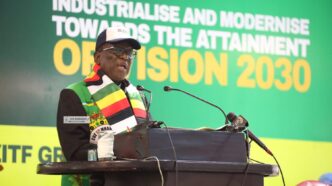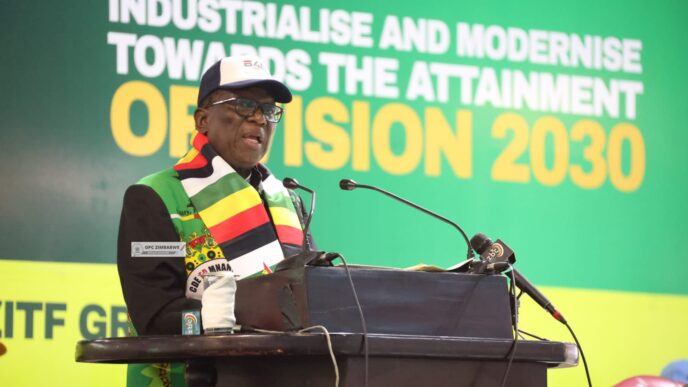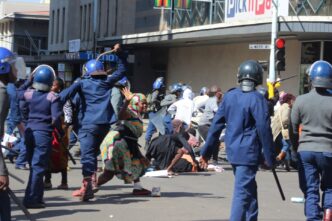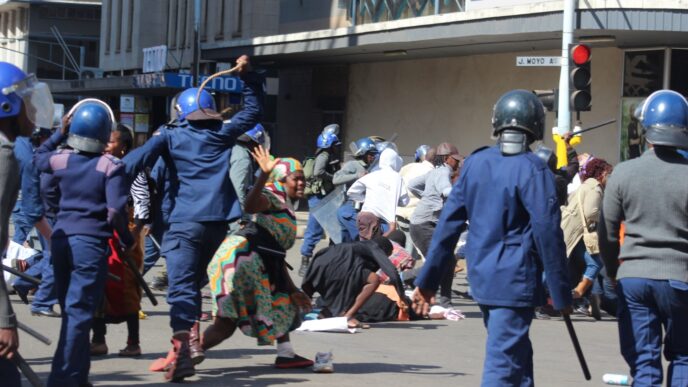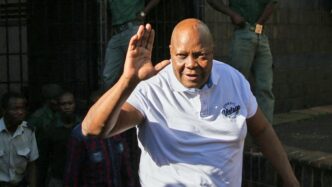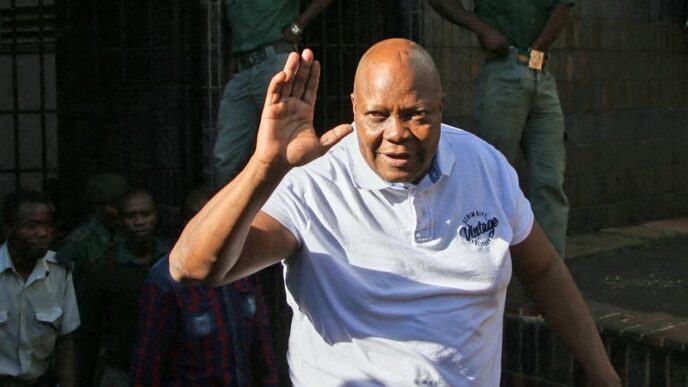Zimbabwe’s ruling ZANU-PF party formalised its support on Saturday for extending President Emmerson Mnangagwa’s term of office until 2030, a decision which immediately raised concerns regarding the country’s democracy and governance.
Mnangagwa, 83, seized power in a military-backed coup in 2017, and his constitutionally limited two terms are set to end in 2028.
However, factions within ZANU-PF have been pushing for an extension for months. Party officials cited “the extensive developmental milestones and significant socio-economic progress” achieved under the president as justification for the move.
Spokesman Nick Mnangagwa said the party had directed the government to begin the necessary legislative amendments.
Critics have condemned the decision, highlighting the country’s struggling economy, which has been plagued by hyperinflation, high unemployment, and allegations of corruption and cronyism.

Opposition figures also accused ZANU-PF of suppressing dissent and undermining democracy since taking power at independence in 1980.
Lawyer and opposition figure Tendai Biti pledged to challenge any constitutional changes to allow Mnangagwa to extend his presidency.
“We will defend the Constitution against its capture and manipulation to advance a dangerous, unconstitutional anti-people agenda,” he wrote on X.
He added that the fight would continue against “corrupt cartels and syndicates that have systematically looted Zimbabwe and now want to take over the State.”
Tensions escalated on Friday when 10 people, mostly in their sixties and seventies, were arrested in Harare for allegedly planning to protest Mnangagwa’s continued rule.
They were charged on Saturday with participating in a gathering intended to incite “public violence” and will remain in custody until a bail hearing on Monday.
Earlier this year, 95 youths faced arrest for similar protests.


 Trending
Trending 
